
Collagen for the Face: 13 Steps to Restore, Protect, and Boost Collagen
Collagen in the Face
As someone who dealt with fine lines and wrinkles, I understand your frustration and desire to find ways to increase collagen in the face and improve the overall appearance of your skin.
In my quest to find a cure, I researched everything from topical creams to dietary supplements and discovered that there is a wealth of information out there on this topic.
However, with so many options and conflicting advice, it can be overwhelming to know what actually works.
That's why I decided to write this article, to share my research and personal experience in the hope of helping people just like you and my former, wrinklier self.
Whether you're looking for natural remedies or medical treatments, there are many options available. By exploring them all, we can better understand what works and what doesn't.
So, let's dive in and discover the best ways to increase collagen in the face and achieve healthy, youthful-looking skin.

How to Increase Collagen in Your Face
You can easily increase collagen in your face by:
- using vitamin C
- using natural sunscreen or avoiding the sun
- doing face exercises
- drinking bone broth
- trying collagen peptides
- wearing a hat
- stopping smoking
- doing a face massage
- reducing stress
- limiting alcohol consumption
Read on for details on each of these strategies.
1. Use Vitamin C
Vitamin C is an essential nutrient that plays a vital role in collagen synthesis. Collagen is a protein that provides structural support to our skin, bones, and other connective tissues.
Without adequate collagen production, our skin can become dull, dry, and prone to wrinkles and fine lines.
Adding vitamin C into your skincare routine can help increase collagen production, resulting in firmer, smoother, and more youthful-looking skin.
Plenty of vitamin C aids in stabilizing collagen mRNA, thus increasing collagen protein synthesis for repair of the damaged skin (1).
Foods such as citrus fruits, berries, kiwi, mango, and papaya are all excellent sources of vitamin C. If you're not getting enough vitamin C from your diet, you can also take vitamin C supplements.
Applying a vitamin C serum topically is another way to help increase collagen production. Vitamin C serums are available in various concentrations and formulations, so it's essential to choose one that suits your skin type and needs.
Look for skincare products such as moisturizers, masks, and creams that contain vitamin C as an active ingredient. These products can help brighten and firm the skin, reducing the appearance of fine lines and wrinkles.
2. Use Natural Sunscreen
Sun damage is one of the leading causes of collagen breakdown and premature aging. Exposure to UV radiation can cause oxidative stress, leading to the breakdown of collagen and elastin fibers in the skin (2).
Protecting your skin from the sun's harmful rays is the single best thing you can do to maintain healthy collagen levels and prevent premature aging.

Physical sunscreens have mineral-based ingredients such as zinc oxide or titanium dioxide that form a physical barrier between your skin and the sun's rays.
These sunscreens are gentle on the skin and do not contain any harmful chemicals that can further damage collagen.
Look for natural ingredients such as aloe vera, green tea extract, or vitamin E, which can help soothe the skin, reduce inflammation and protect against free radical damage.
Make sure to apply sunscreen daily, even on cloudy or overcast days, as UV radiation can still penetrate through clouds and windows.
Apply sunscreen at least 15-20 minutes before going outside and reapply every two hours or after swimming or sweating.
3. Do these Face Exercises
Have you thought about exercising your facial muscles just like you exercise your body? As we age, it's not only our skin that loses its firmness, but also the muscles that support it. These muscles can become weak and atrophied, resulting in visible sagging.
Fortunately, there are plenty of facial muscle exercises that can help you keep your skin healthy and your facial muscles strong.
One simple exercise is vowel counting. To do this, say the vowels (A, E, I, O, U) out loud while exaggerating the facial movements.
For instance, when saying "A," open your mouth wide from side to side, and when saying "U," pucker your lips as if preparing for a kiss. Repeat this exercise three times per day.
4. Drink Natural Sources like Bone Broth
Bone broth is a good source of collagen for the face because it contains the necessary nutrients to help support healthy skin, hair, and nails. Consuming collagen-rich foods like bone broth can help to replenish the body's natural collagen levels and support healthy skin.
Bluebird Provisions chicken broth is a great option if you're looking to add bone broth to your diet. It is a powdered bone broth that mixes easily and is easily digestible.
Unlike other products on the market, it does not contain any gums, fillers, or "natural flavors." It is made with real chicken bone broth and provides all the benefits of liquid bone broth in a convenient, easy-to-use powder form.
Also, Bluebird Provisions chicken broth is a great way to improve gut health. It has amino acids like glycine, proline, and glucosamine, which are important for digestion and gut health.
Consuming bone broth regularly can help to decrease inflammation in the gut and promote a healthy digestive system.
5. Try a Collagen Peptides Supplement
Collagen peptides supplements are an easy and convenient way to get the benefits of collagen for your face. These supplements are usually available in powder or capsule form and can be added to food or drinks or taken as a pill.
Collagen peptides are broken down collagen proteins that are easier for the body to absorb and use (3).
Looking for a supplement recommendation? Read my guide to finding the best collagen peptides supplement.
When taken regularly, they can help to promote healthy skin by increasing skin elasticity, reducing wrinkles and fine lines and improving skin hydration.
To try a collagen peptides supplement, you can start by selecting a reputable brand that offers high-quality collagen peptides.
Read my checklist for what to look for in supplements.
Look for supplements that are sourced from grass-fed, pasture-raised animals, as these tend to be of higher quality.
It's also important to follow the recommended dosage (find out how much per day) and to be consistent with taking the supplement, as it can take several weeks to start seeing results.
6. Wear a Hat
Wearing a hat can help increase collagen in the face by protecting the skin from harmful UV radiation. UV radiation from the sun can break down collagen in the skin, leading to wrinkles, fine lines and other signs of aging.
By wearing a hat that shades the face from the sun, you can reduce the amount of UV radiation that reaches your skin and slows down the breakdown of collagen.
In addition, a hat can also help to retain moisture in the skin. When the skin is dehydrated, it can appear dull and lack elasticity, which can make fine lines and wrinkles more noticeable.
By protecting the face from direct sunlight, a hat can help to maintain the skin's moisture and promote the production of collagen.
7. Limit Overall Sun Exposure
Excessive sun exposure can damage the skin and reduce collagen levels, leading to wrinkles, fine lines and other signs of aging. Limiting overall sun exposure can help increase collagen levels in the face by preventing further damage to the skin and allowing the body to naturally repair and replenish collagen.
When the skin is exposed to UV radiation from the sun, it triggers the production of free radicals in the skin, which can damage collagen fibers and break them down.

This can lead to a reduction in collagen levels, resulting in the loss of skin elasticity and the development of wrinkles and fine lines.
To limit overall sun exposure and increase collagen in the face, it is recommended to:
- Wear protective clothing: Covering up with long-sleeved shirts, pants, and wide-brimmed hats can help shield the skin from harmful UV radiation.
- Use sunscreen: Apply a broad-spectrum sunscreen with an SPF of 30 or higher to exposed skin every day, even on cloudy or overcast days.
- Avoid midday sun: Try to avoid being in the sun during peak hours of 10 a.m. to 4 p.m. when the sun's rays are strongest.
- Seek shade: Seek shade under trees, umbrellas, or other protective structures when spending time outdoors.
8. Stop Smoking (if you do)
Smoking is known to have several negative effects on the body, including damaging the collagen and elastin fibers in the skin (4).
Collagen and elastin are responsible for keeping the skin tight and firm, but when they are damaged, the skin loses its elasticity and begins to sag.
When you smoke, the nicotine and other chemicals in cigarettes cause blood vessels to narrow, reducing blood flow and oxygen to the skin. This slows down the production of collagen and elastin and leads to premature aging and wrinkles.
Stopping smoking can be one of the best things you can do to increase collagen in your face. Quitting smoking can help increase blood flow and oxygen to the skin, allowing for the production of collagen to resume. This can result in a healthier, more youthful-looking complexion over time.
Finally, smoking cessation can also reduce inflammation and free radical damage in your body, which can further contribute to collagen breakdown.
9. Eat Skin Friendly Foods
- Bone broth - Rich in collagen, bone broth helps to support the structure of the skin and improve its elasticity.
- Fatty fish - Salmon, mackerel, and sardines are great sources of omega-3 fatty acids, which can help to reduce inflammation and improve skin health.
- Avocado - Loaded with healthy fats, avocados are also rich in vitamin E, which is a powerful antioxidant that can help to protect the skin from damage.
- Berries - Blueberries, strawberries, and raspberries are packed with antioxidants that can help to reduce inflammation and protect the skin from oxidative stress.
- Leafy greens - Spinach, kale, and other leafy greens are great sources of vitamins A and C, which are important for maintaining healthy skin.
Learn other foods for glowing skin in my article.
10. Try a Face Massage
Facial massage is a technique that can boost circulation and work out facial muscles. Massages ranging from deep tissue to lightweight strokes are beneficial.
Here is how you can get started from the comfort of your own home.
- Use your knuckles to rub your forehead and chin muscles horizontally for 10 seconds with light pressure, relaxing and centering the often overworked chin and forehead muscles
- Push your knuckles underneath your cheekbones with light pressure until you feel your muscles relax, about 1-2 minutes. This massage increases circulation and primes the cheek bone area.
- Apply pressure on the corners of your eyebrows in the nose bridge area with your thumbs for three seconds to increase circulation and relieve tension around your eyes. Press on the brow bone area only, not the soft area around your eyes.
- Place your index, middle, ring, and pinky fingers on your jawline below your cheeks on both sides of your face. Massage upward and outward towards the outer cheek/ear area with all four fingers for about 20 seconds each time, aiming for five sets. This increases energy and circulation in the cheek bone area.
11. Reduce Stress
Chronic stress can lead to the release of cortisol, a hormone that can break down collagen and result in skin aging, wrinkles and sagging.
Reducing stress can help improve collagen in the face by decreasing the levels of cortisol in the body. Try practicing relaxation techniques like meditation, yoga or deep breathing exercises. The physiological sigh is a great place to start.
Engaging in regular physical activity, getting enough sleep, and avoiding or managing stressful situations helps as well.
12. Reduce Alcohol Consumption
Alcohol is known to dehydrate the body, which can lead to the breakdown of collagen, resulting in premature aging, fine lines, wrinkles and sagging skin.
Reducing alcohol use can help improve collagen in your face by reducing the negative effects of alcohol. When alcohol is reduced, your body can better retain moisture, which helps to prevent collagen breakdown and improve skin elasticity.
Moreover, excessive alcohol consumption can lead to inflammation and oxidative stress, both of which can negatively impact collagen production.
By reducing alcohol intake, inflammation and oxidative stress are also reduced, which can help to promote collagen synthesis and improve skin health.
13. SWEAT
Sweating is the number one way I boost collagen and get younger looking skin. I personally love the sauna, but I also sweat from exercise.
There is a great report on sauna benefits and use by Dr. Rhonda Patrick on her website which I will link below for you (6). Aim for 3 sessions for 15-20 minutes per week at at least 80 degrees Farhrenheit.

What reduces collagen in the face?
- Aging: As we age, our body's natural collagen production slows down, leading to a decrease in collagen levels and resulting in visible signs of aging.
- Sun Damage: Exposure to UV radiation from the sun can lead to collagen breakdown and damage, resulting in premature aging and skin damage like sunspots and uneven texture.
- Stress: Chronic stress can cause the release of the hormone cortisol, which can break down collagen and contribute to premature aging of the skin.
- Poor Nutrition: A diet lacking in essential nutrients, vitamins, and antioxidants can negatively impact collagen production and lead to skin damage.
- Smoking: Smoking cigarettes can lead to collagen breakdown and damage due to the presence of harmful chemicals and toxins in cigarettes.
- Surgery and Procedures: Certain cosmetic procedures and surgeries can damage or remove collagen from the skin, leading to a loss of elasticity and a decrease in collagen levels.
- Hormones: Fluctuations in hormones like estrogen and testosterone can impact collagen production, leading to changes in skin texture, elasticity, and overall appearance.
- Lack of Hydration: When the body is dehydrated, it can lead to a decrease in collagen levels, resulting in dry, dull and sagging skin.
- Lack of Sleep: Poor sleep quality or lack of sleep can contribute to a decrease in collagen production and lead to visible signs of aging.
- Excessive Sun Exposure: Overexposure to the sun's UV radiation can cause collagen breakdown and damage, leading to premature aging and skin damage.

What vitamins and supplements can I take to increase collagen production?
- Vitamin C: Vitamin C plays a key role in collagen synthesis and can help increase collagen production.
- Zinc: Zinc is another nutrient that supports collagen production and can be taken in supplement form.
- Vitamin A: Vitamin A helps to maintain healthy skin and can also help increase collagen production.
- Copper: Copper is involved in the formation of collagen and elastin and can be taken in supplement form.
- Vitamin E: Vitamin E is an antioxidant that can help protect the skin from damage and also supports collagen production.
- Collagen supplements: Collagen supplements contain hydrolyzed collagen, which is broken down into smaller, more easily absorbed particles. This can help increase collagen levels in the body.
- Hyaluronic acid: Hyaluronic acid is a substance that is naturally found in the body and helps to keep the skin hydrated. Taking a supplement can help support collagen production and improve skin elasticity.
How does aging affect collagen levels?
As we age, our body's natural collagen production slows down, leading to a decrease in collagen levels (5).
This decrease occurs due to a combination of factors, including a decline in the number of fibroblast cells that produce collagen, as well as changes in the quality of the collagen fibers that are produced.
These changes can result in visible signs of aging, like those dreaded wrinkles. Reduced collagen can also increase weight, including in the face, which can cause an older appearance.
Finally, as collagen levels decrease, our skin becomes thinner and more fragile, making it more prone to damage from environmental factors like UV radiation and pollution.
What is the best way to prevent collagen loss?
The best way to prevent collagen loss is by adopting a healthy and sustainable lifestyle that includes the following:
- Protecting your skin from sun damage: UV radiation can cause collagen breakdown and damage, leading to premature aging and skin damage. Wear protective clothing, hats, and use broad-spectrum sunscreen with at least SPF 30 daily
- Eating a balanced and nutrient-rich diet: A diet rich in essential nutrients, vitamins, and antioxidants can support collagen production and help prevent skin damage. Include foods that are high in vitamin C, vitamin A, zinc, and copper.
- Quitting smoking: Smoking cigarettes can lead to collagen breakdown and damage due to the presence of harmful chemicals and toxins in cigarettes. Quitting smoking can help prevent further collagen loss.
- Reducing stress: Chronic stress can cause the release of the hormone cortisol, which can break down collagen and contribute to premature aging of the skin. Engage in stress-reducing activities like exercise, meditation or yoga.
- Staying hydrated: Dehydration can lead to a decrease in collagen levels, resulting in dry, dull, and sagging skin. Make sure to drink plenty of water and consume hydrating foods.
- Getting quality sleep: Poor sleep quality or lack of sleep can contribute to a decrease in collagen production and lead to visible signs of aging. Aim for 7-9 hours of sleep per night.
Do collagen creams or cosmetics work for my face?
I had tried countless creams and products that promised to help reduce my growing wrinkles. However, despite spending a lot of money, nothing seemed to work and I was starting to accept that I was just going to look old.
A friend recommended a collagen cream that they had been using. While is was affordable, it did not seem to work so well for my face.
I had to stick to the strategies mentioned above in this article in order to make progress. Avoiding the sun, face exercises and eating more collagen rich foods like bone broth was the key for me.
I started to notice a significant difference in the appearance of my fine lines and wrinkles. My skin looked smoother, more youthful.
These strategies helped me regain some of my youthful glow and made me feel more confident in my appearance. They can for you too!
Summary
There are many ways to use collagen for the face, but the most important thing is to find a method that works for you.
Try Bluebird Provisions bone broth today to boost your collagen and get that natural glow you’ve always wanted.
Sources
- https://lpi.oregonstate.edu/mic/health-disease/skin-health/vitamin-C
- https://www.cedars-sinai.org/blog/collagen-supplements.html
- https://my.clevelandclinic.org/health/articles/23089-collagen
- https://pubmed.ncbi.nlm.nih.gov/17951030/
- https://www.ncbi.nlm.nih.gov/pmc/articles/PMC1606623/
- https://www.foundmyfitness.com/topics/sauna
Disclaimer: this information is for educational purposes only and has not been evaluated by the FDA or CFIA. It is not intended to diagnose, treat, cure, or prevent any disease. Please consult your primary care physician for advise on any of this.

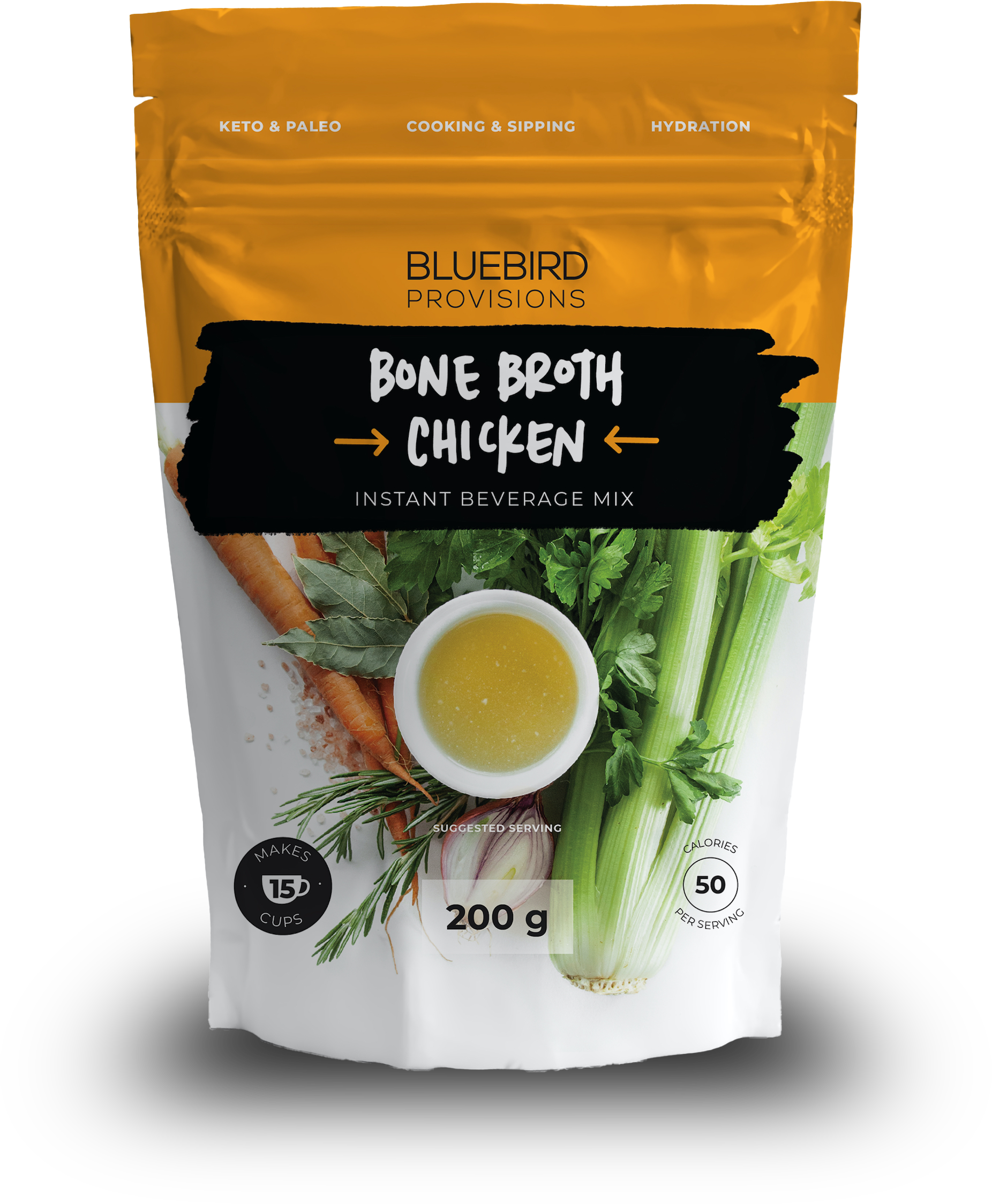
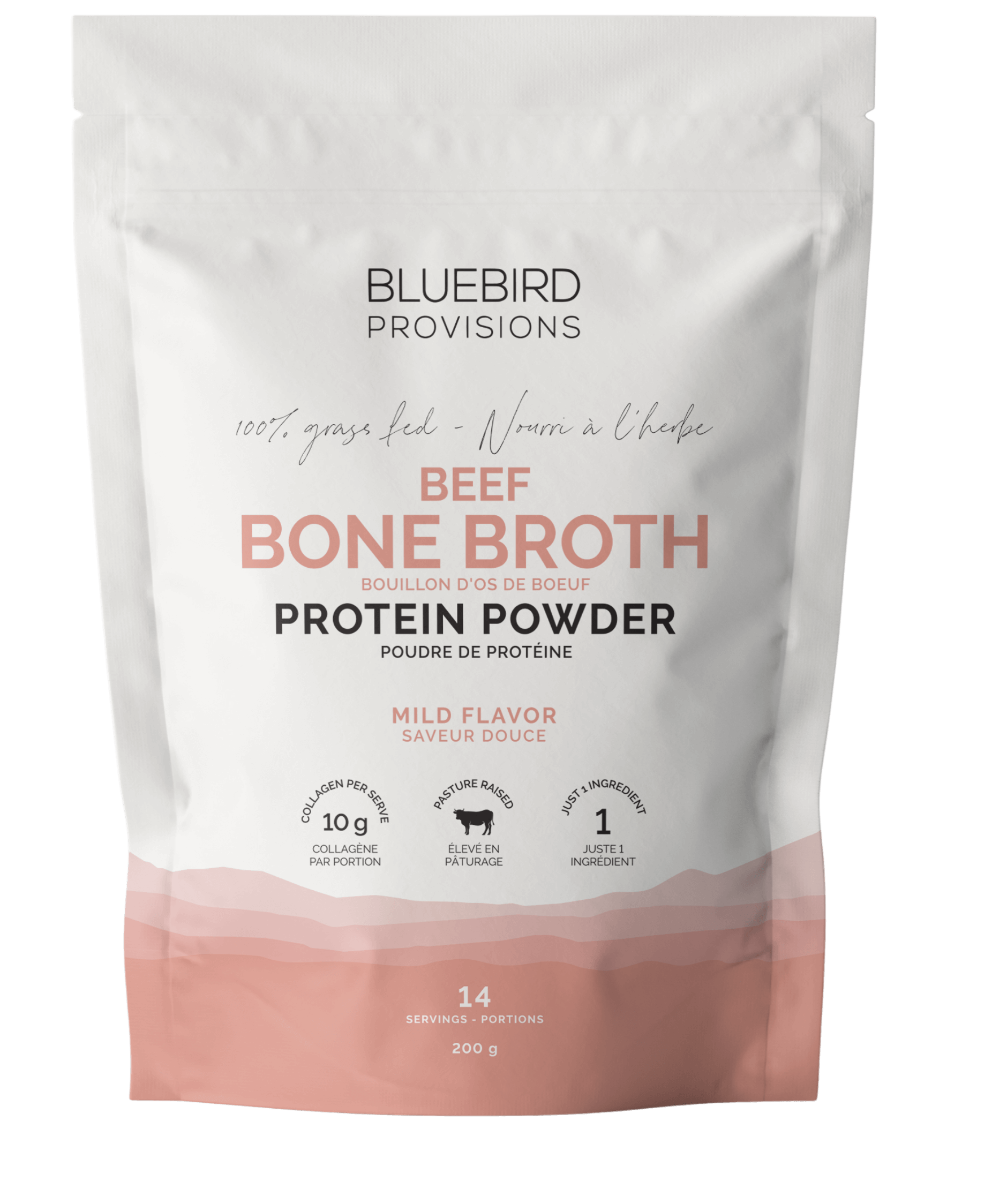

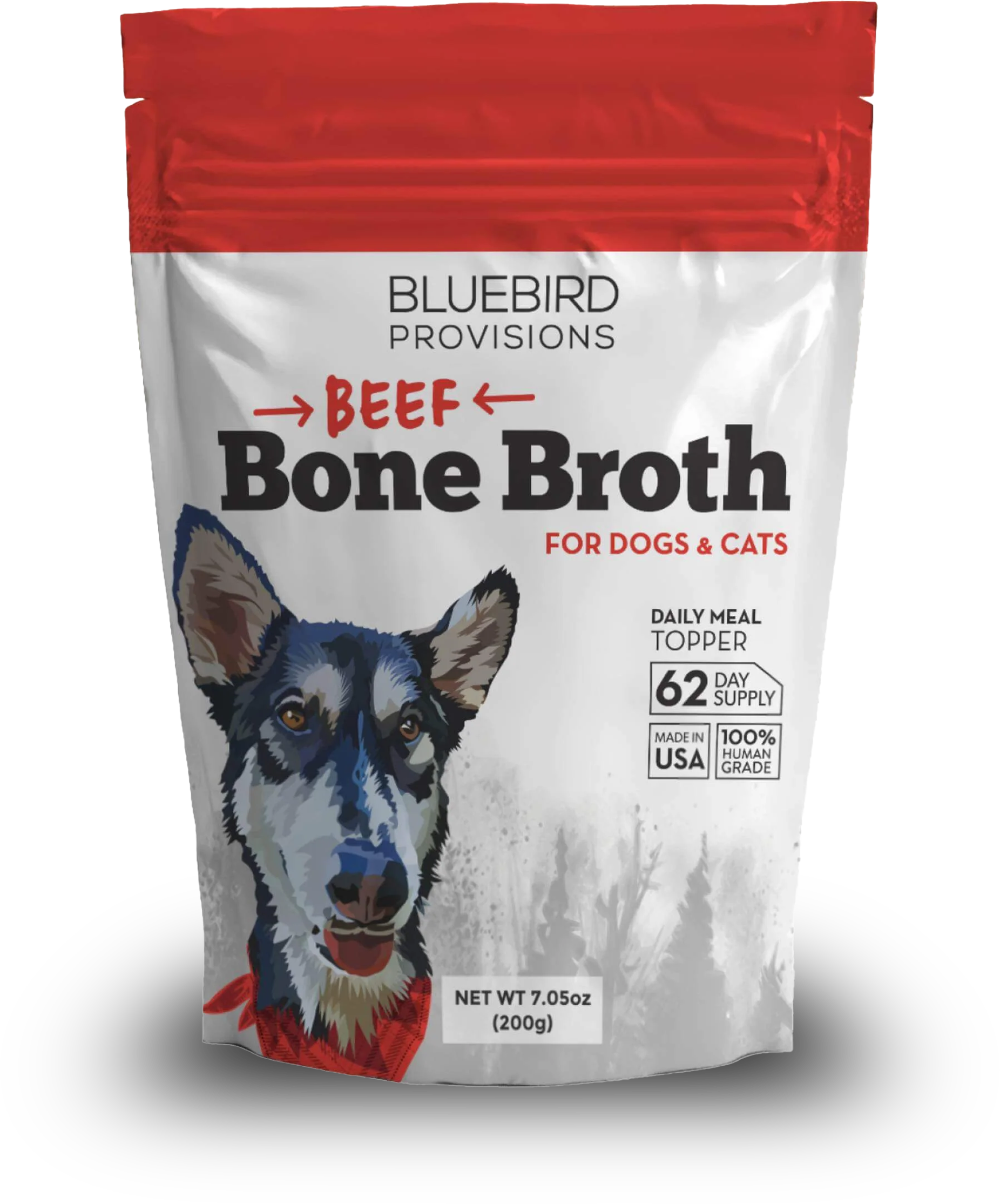
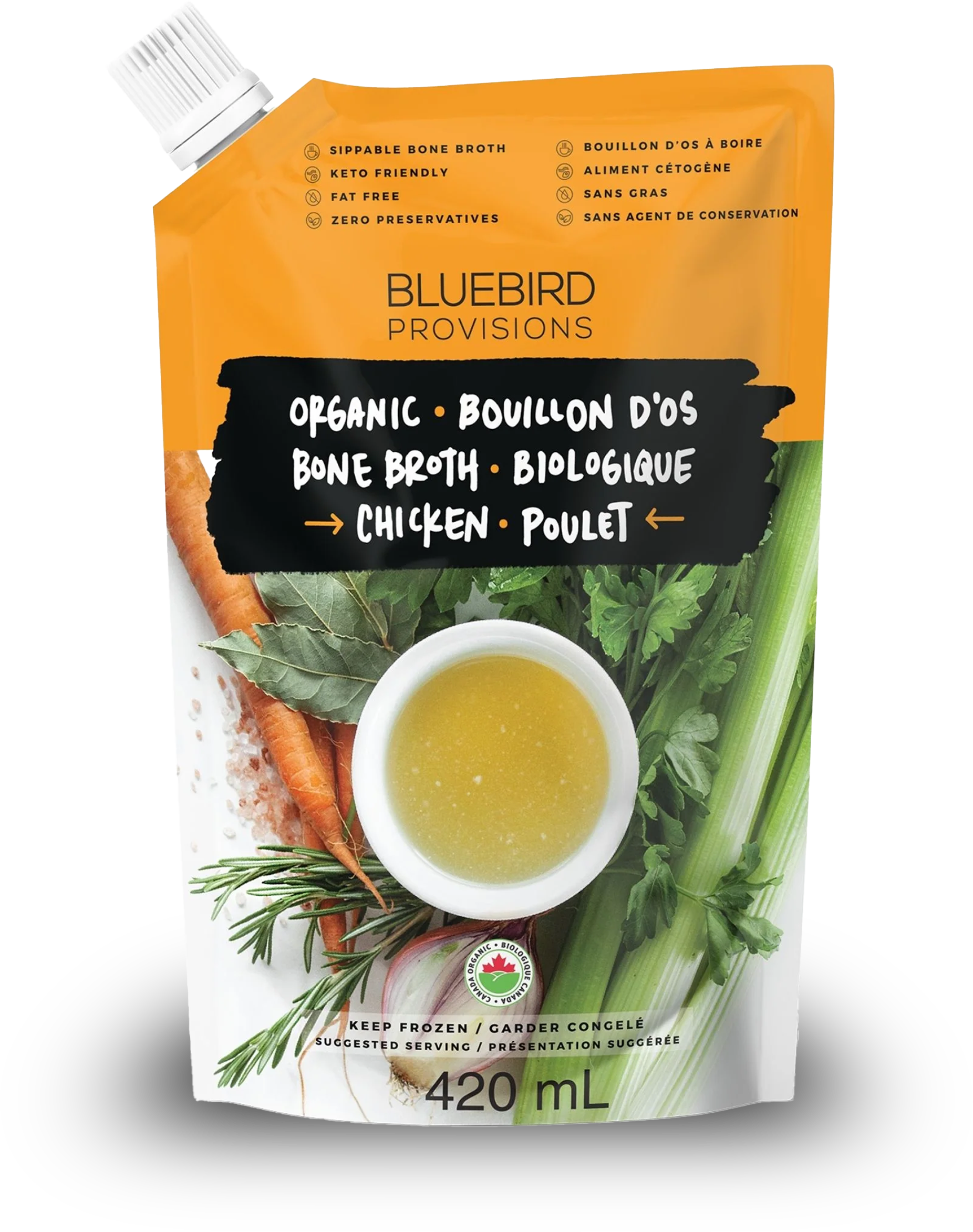
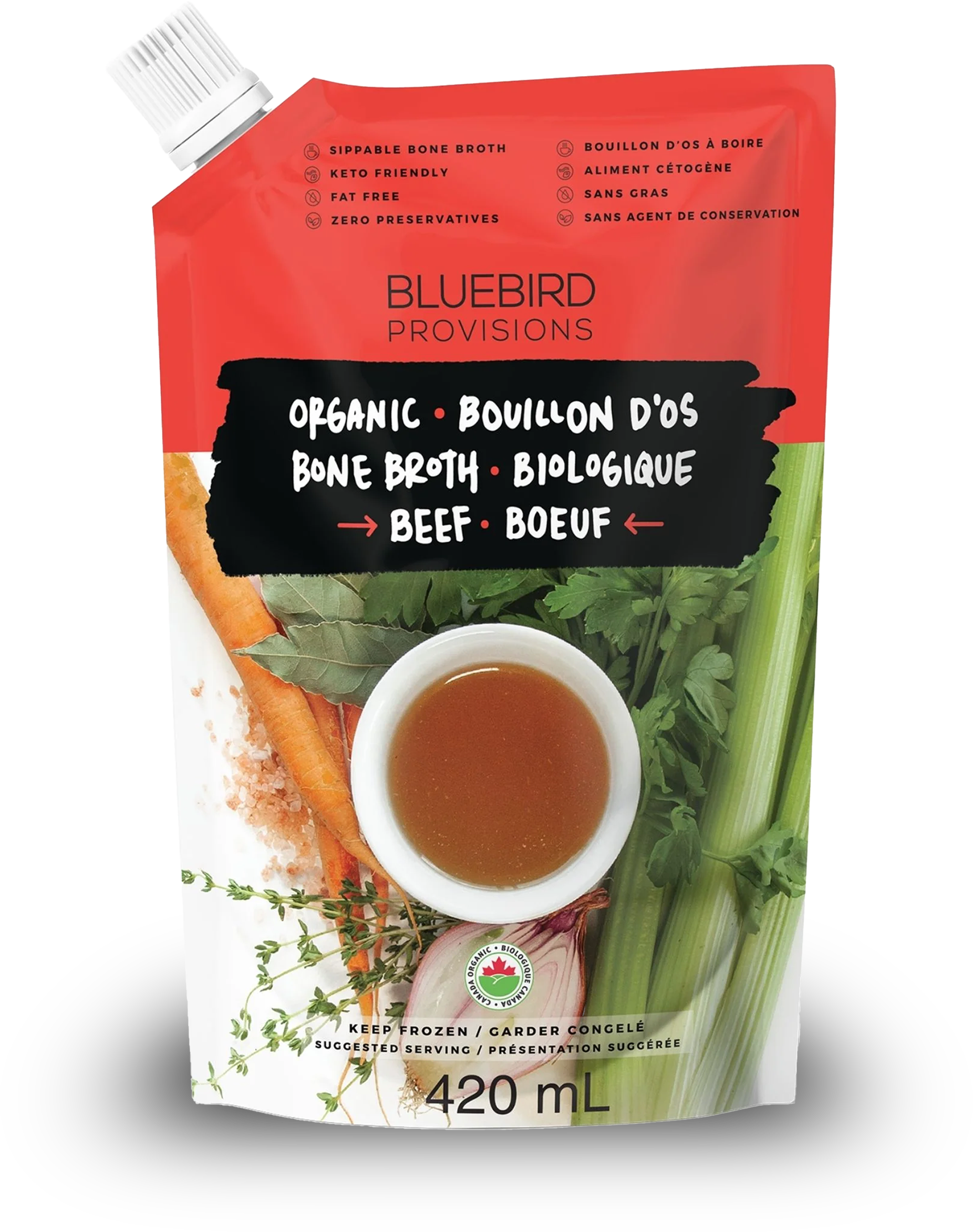
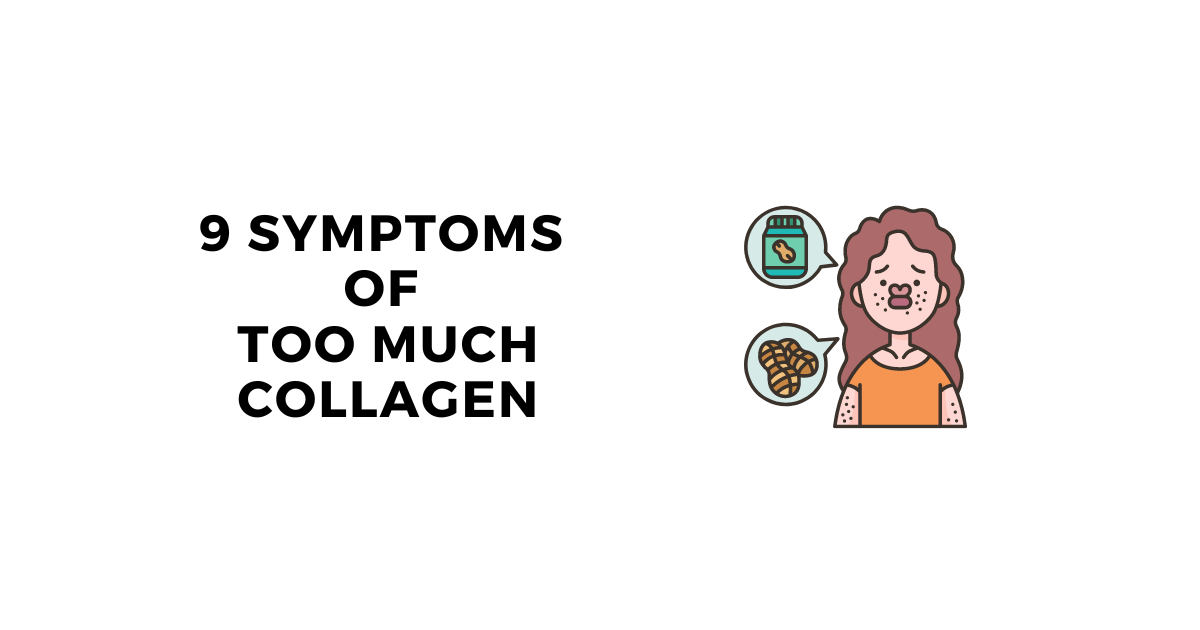
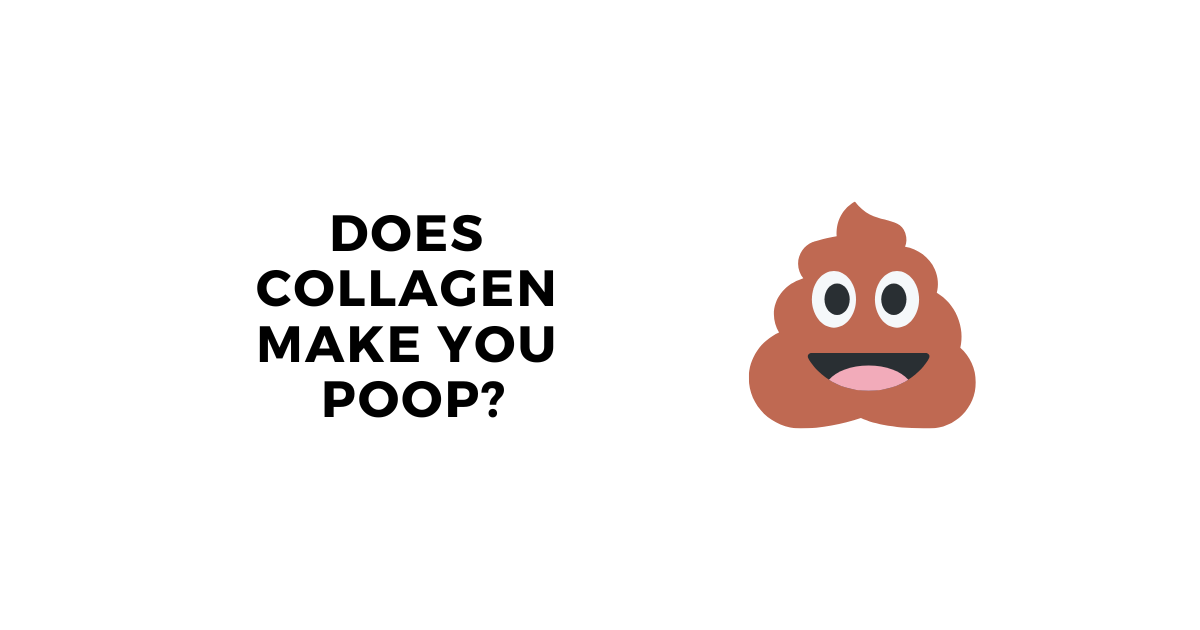
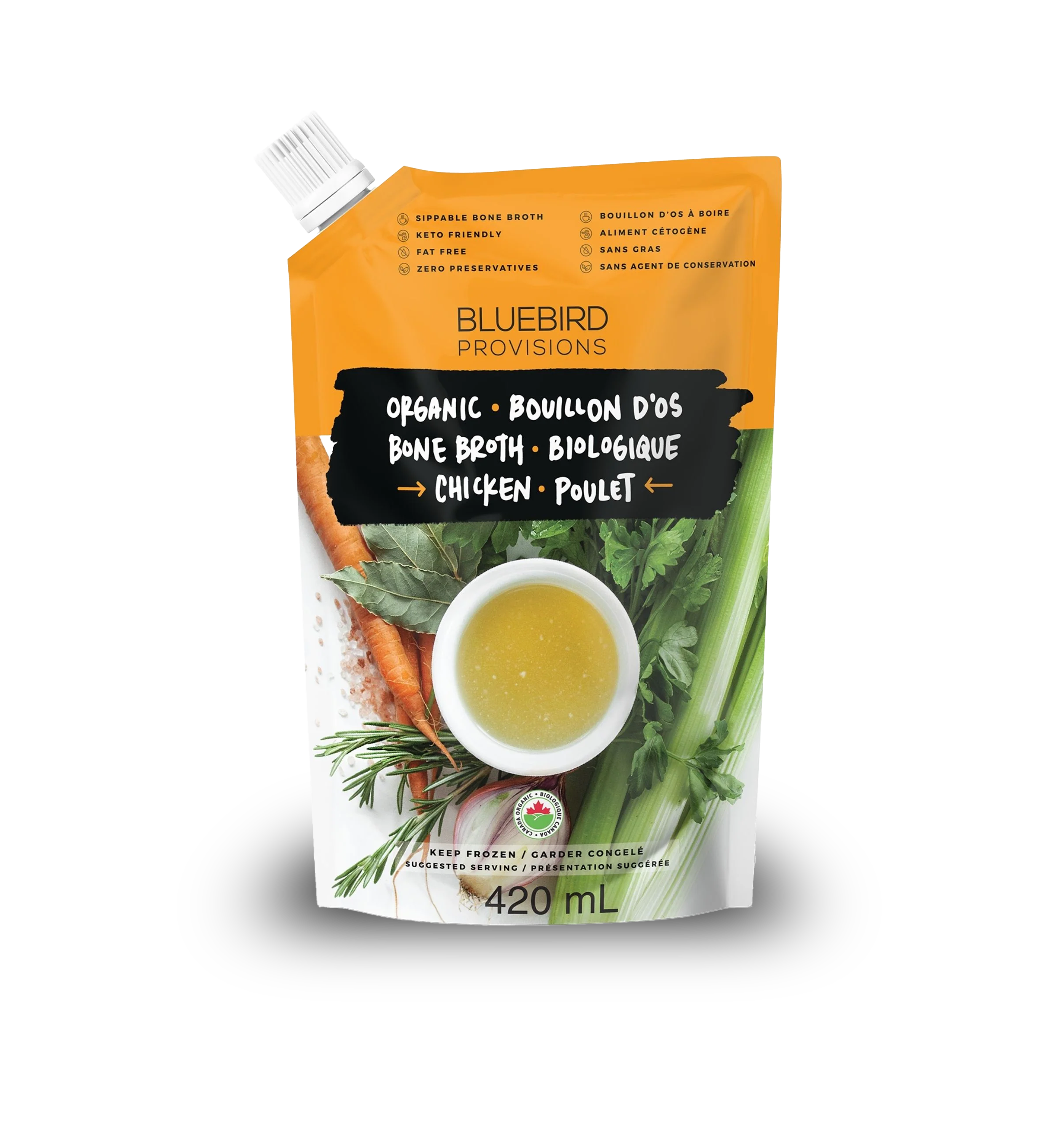
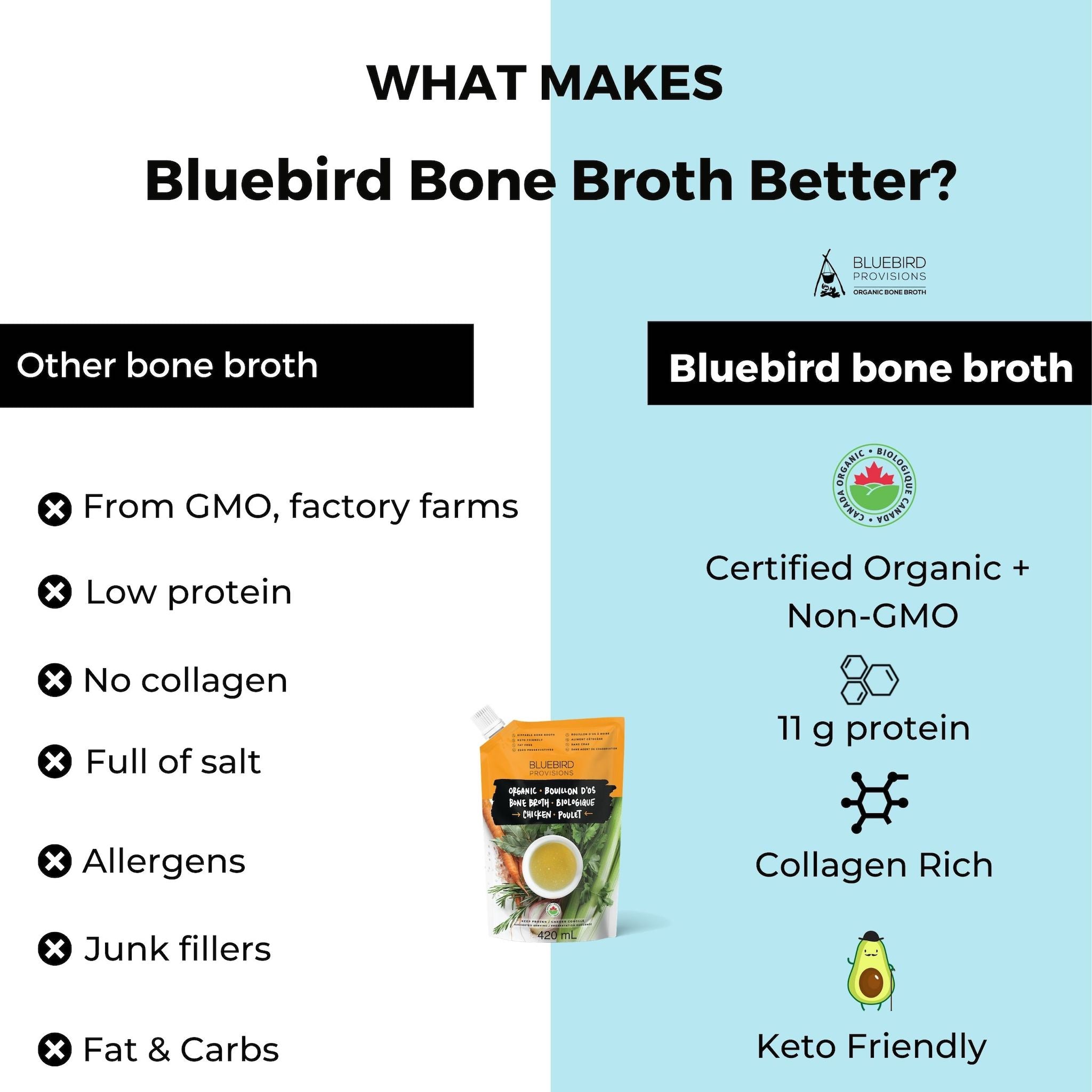
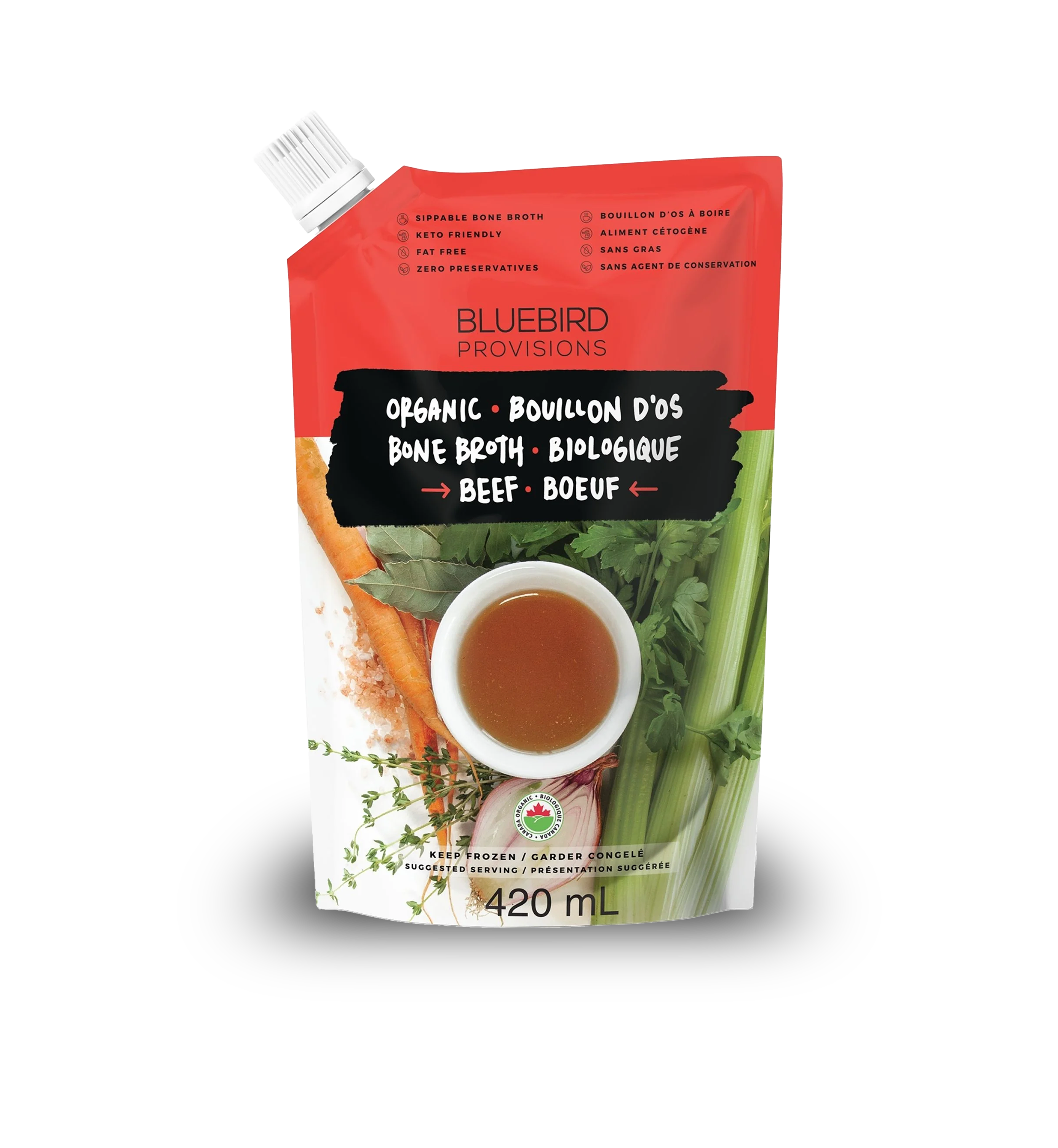
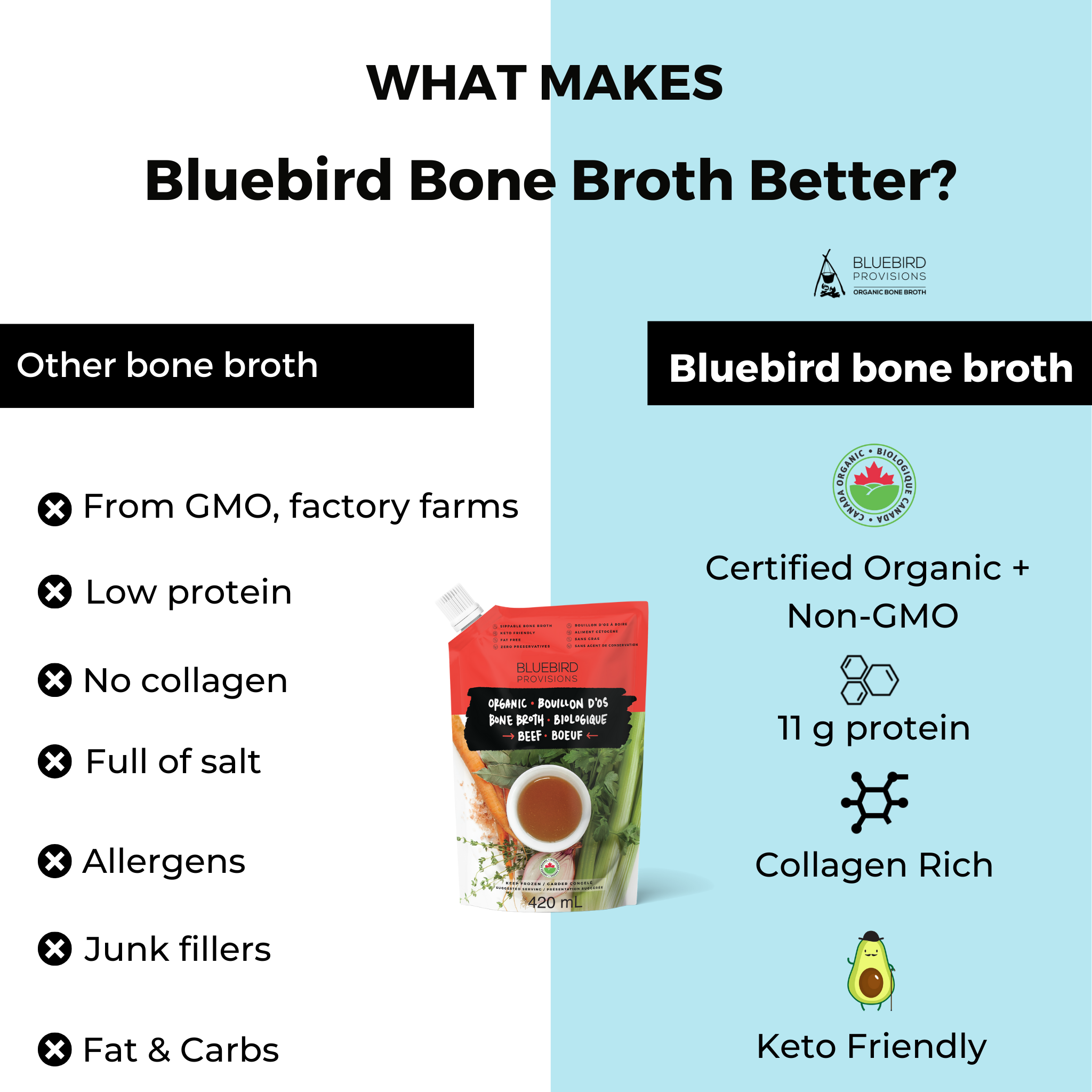
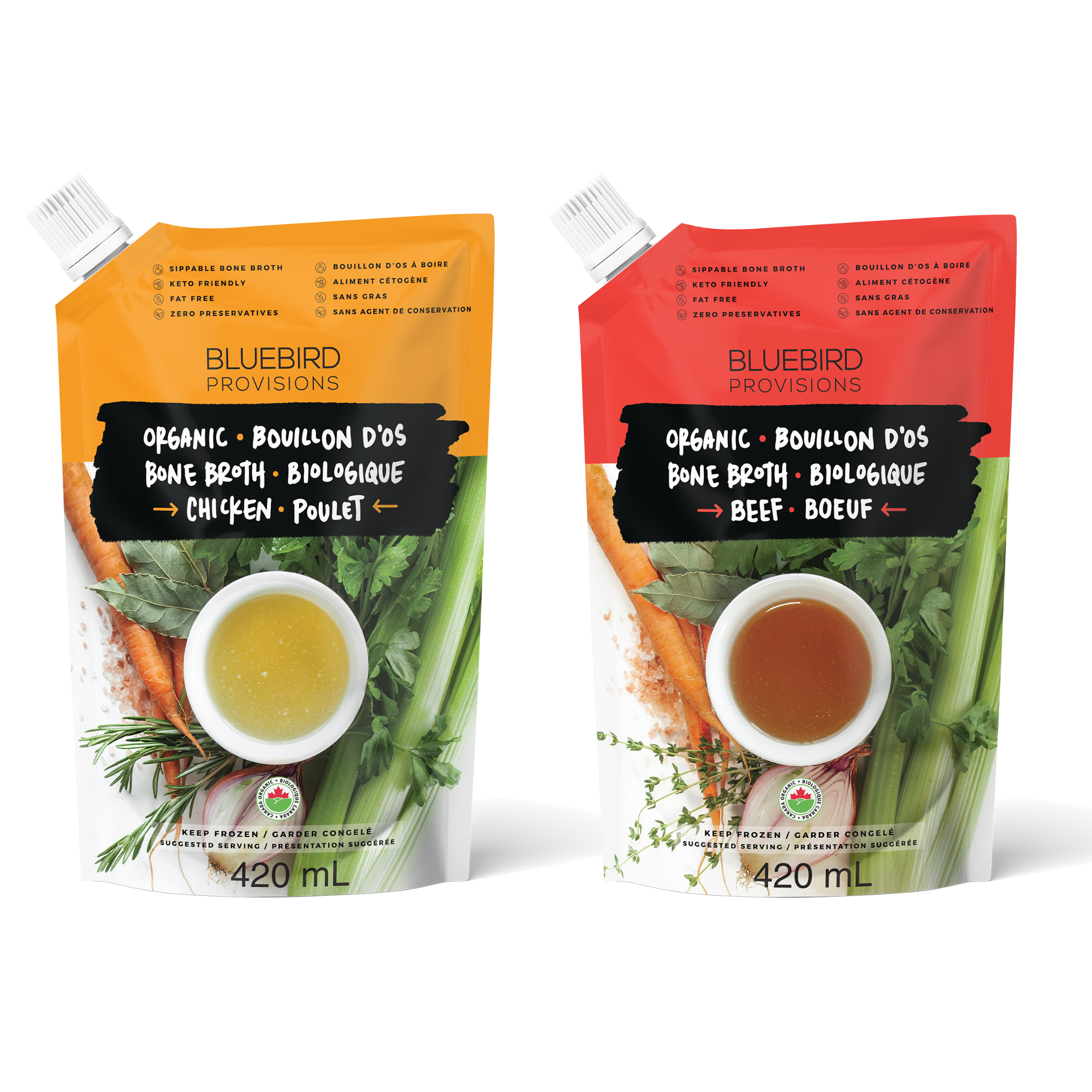

Leave a comment
This site is protected by hCaptcha and the hCaptcha Privacy Policy and Terms of Service apply.